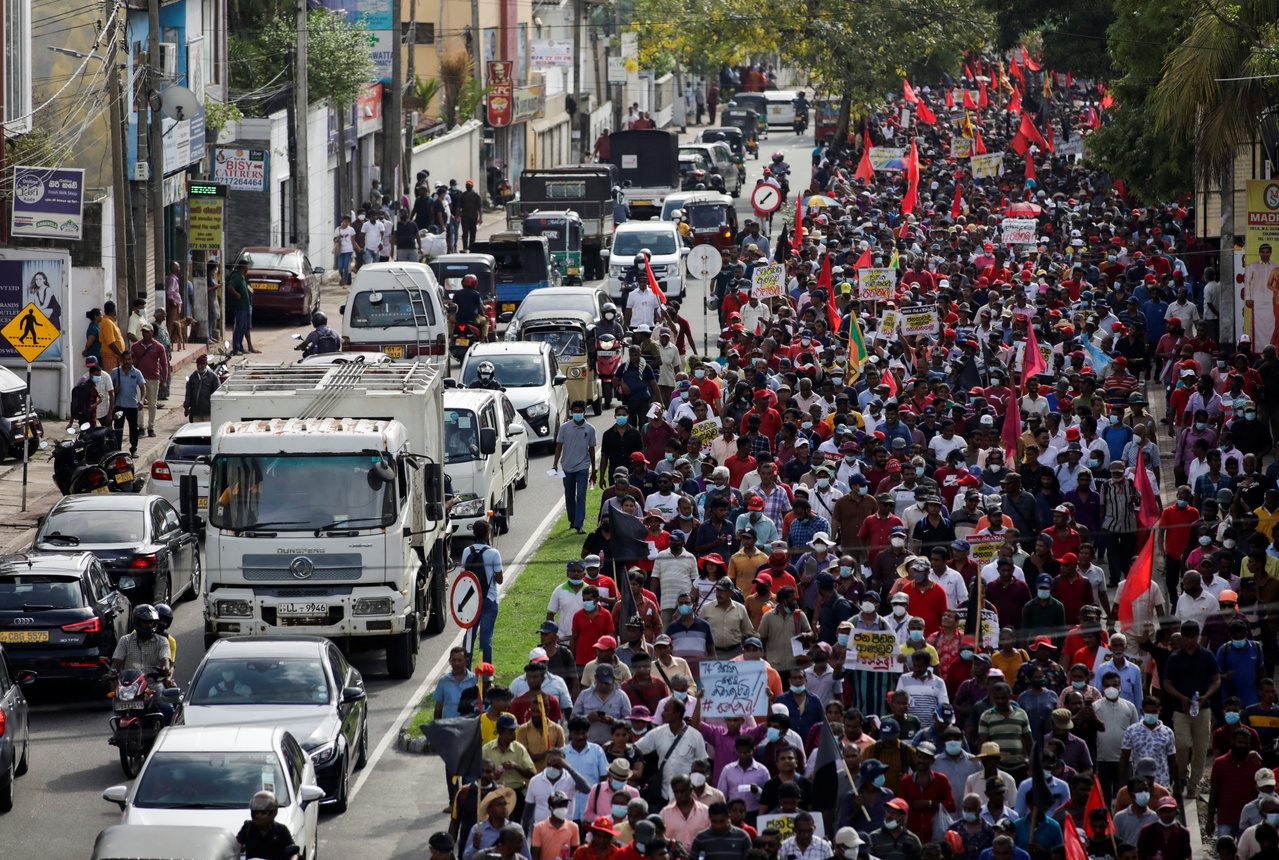For subscribers
Economic Affairs
The don'ts of economic policy: Lessons from Sri Lanka
Extreme populism has led to catastrophe.
Sign up now: Get ST's newsletters delivered to your inbox

Protesters marching towards Colombo from Beruwala amid an economic crisis in Sri Lanka on April 19, 2022.
PHOTO: REUTERS
Follow topic:
With increasing frequency over the past few weeks there have been harrowing stories about what Sri Lanka's worst-ever economic crisis looks like.
Thirteen-hour power cuts; people dying because life-saving drugs have run out; goods piled up at ports because importers can't get dollars to pay for them; a currency crash; soaring prices of essentials, long queues for food, petrol and gas cylinders - as well as passports to get out of the country; street protests calling for the President to quit, the resignation of the entire Cabinet, and then last week, the first-ever default on foreign debt.

